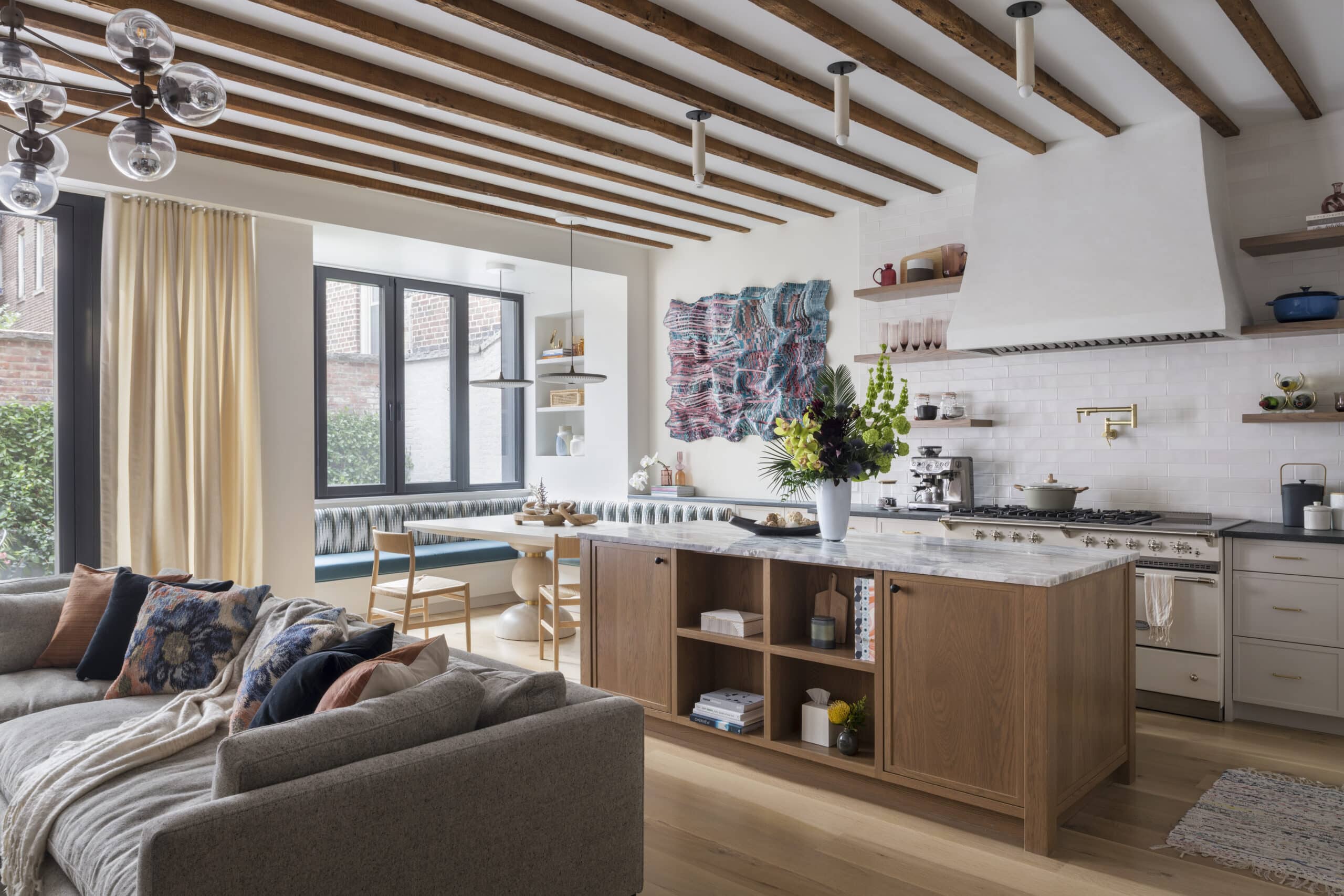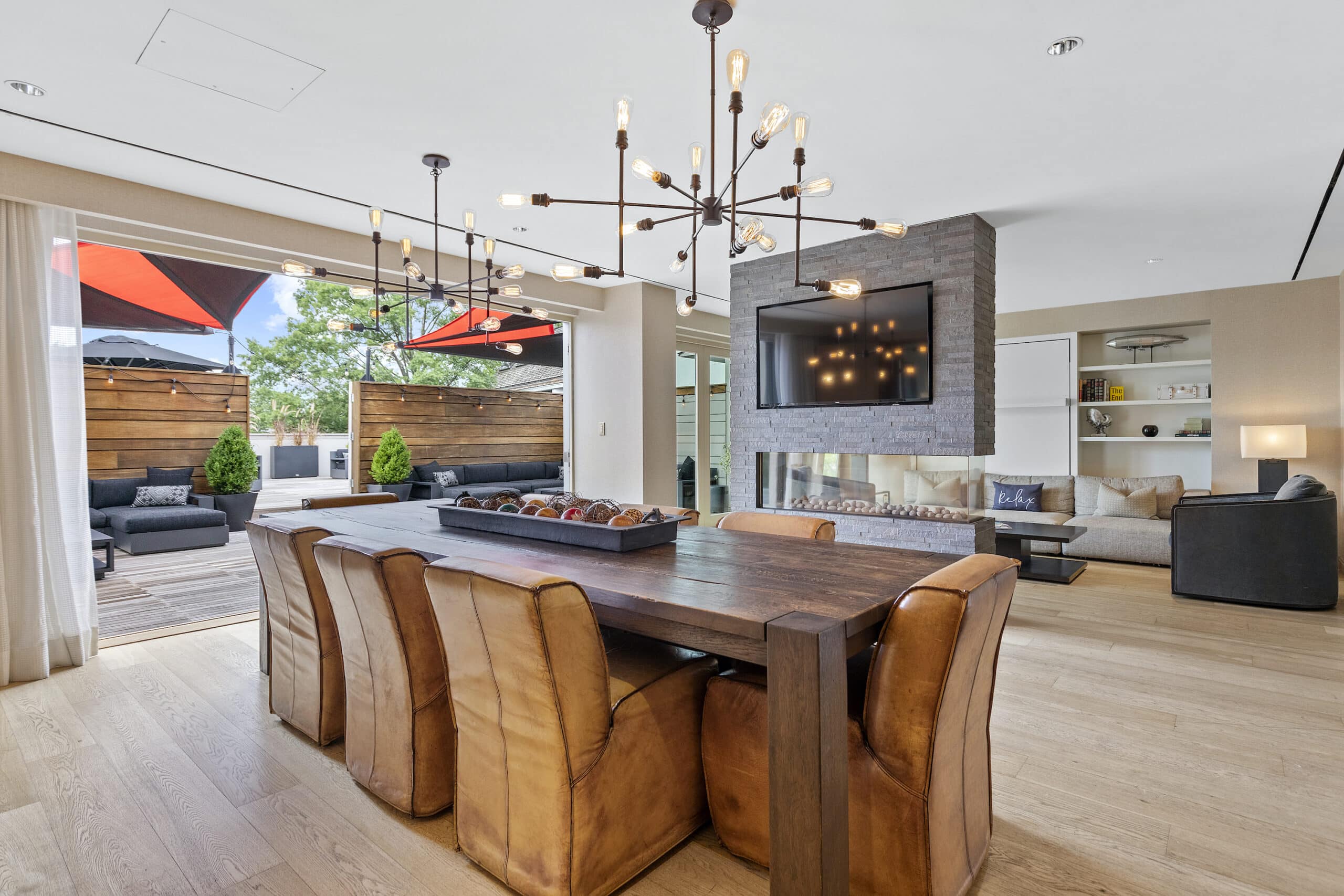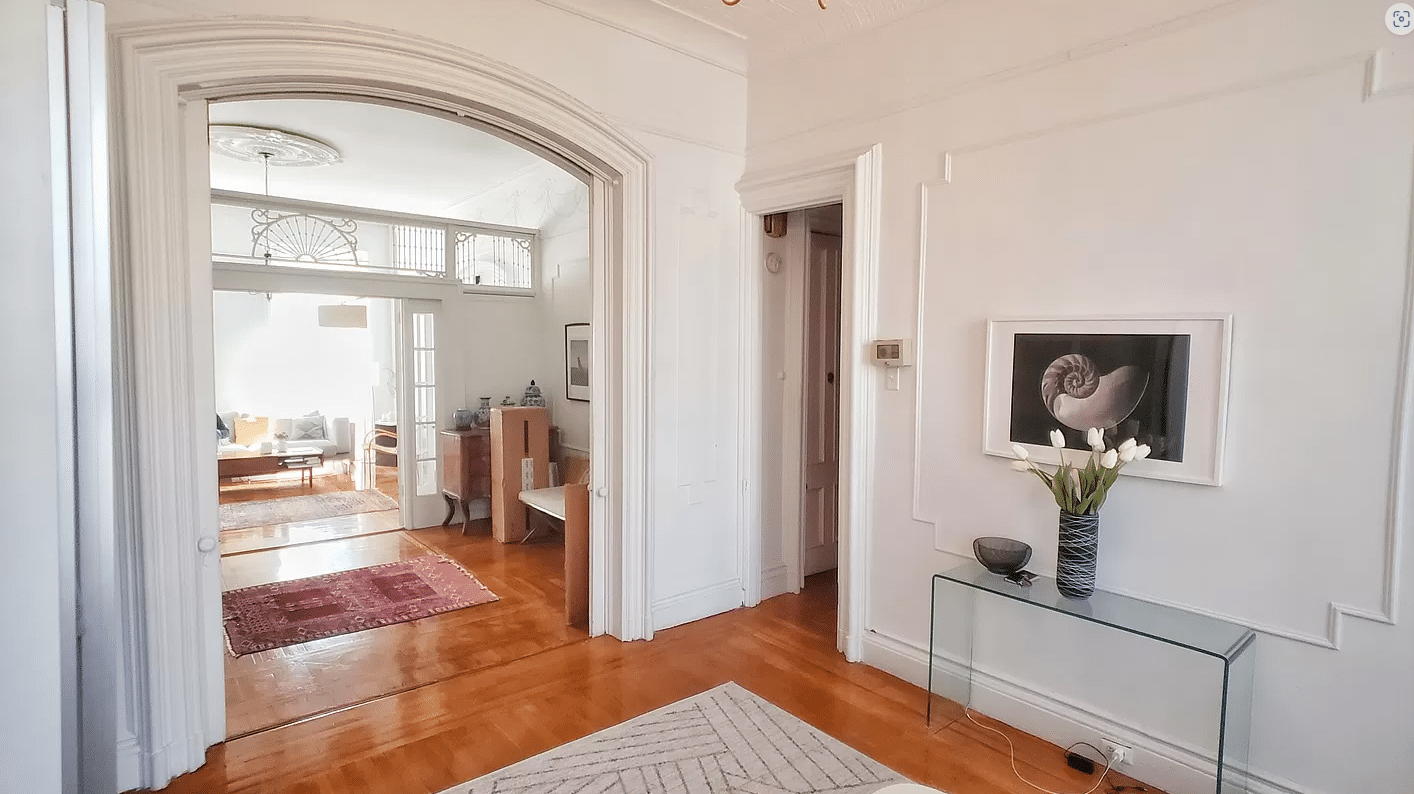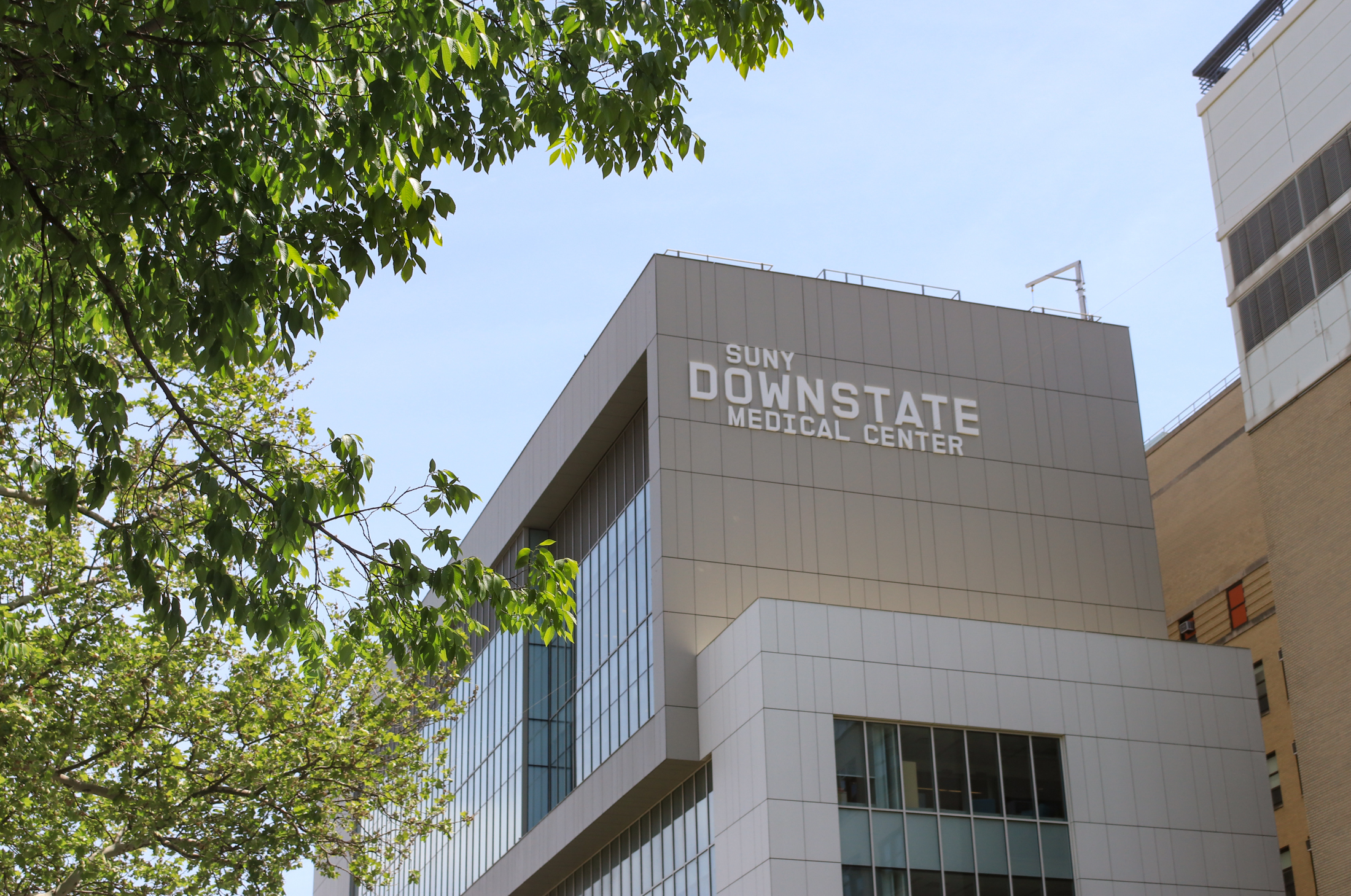Walkabout: Brooklyn's Anti-Suffragists
Photo: New York City Anti-Suffrage Headquarters – Wikipedia I take voting seriously for a lot of reasons, and don’t hold my ability to do so lightly. It was hard won, both as an African-American, and as a woman. Women won the right to vote in the United States less than 100 years ago, through the…

Photo: New York City Anti-Suffrage Headquarters – Wikipedia
I take voting seriously for a lot of reasons, and don’t hold my ability to do so lightly. It was hard won, both as an African-American, and as a woman. Women won the right to vote in the United States less than 100 years ago, through the passage of the 19th Amendment to the Constitution, passed in 1920. This amendment also guaranteed every American citizen of proper age the right to vote, regardless of race or gender, and is one of the most important amendments to the Constitution. Advocating for women’s voting rights had been around since the early 1800’s, but an amendment to the Constitution wasn’t introduced to Congress until 1878. We all learned about Susan B. Anthony, Elizabeth Cady Stanton and the American Women’s Suffrage Movement in school, and these women are now among the most revered in American history for their tireless efforts in the cause of getting women the vote. Women in politics today are part and parcel of everyday life now, so we don’t even think that anyone would have been against it. But there was a vocal minority to women’s suffrage in the late 19th century, and some of the loudest voices against it were right here in Brooklyn Heights.
It was called the Anti-Suffrage Movement, and it took place both here in the US and also in England, which was wrestling with the women’s vote, as well. This is important, because prominent speakers from both countries corresponded and lectured here and in England, exchanging ideas and speeches. While the suffrage movement believed that a woman could not achieve full equality in society without being able to help choose the leadership of that country, the anti-suffragists believed that women were better off not getting entangled in politics. The anti-suffragists believed in domestic feminism, that women had the right to complete freedom within the home, and didn’t need the vote.
On April 18, 1894, the New York State Association Opposed to the Extension of the Suffrage to Women was founded, and met at the home of Mrs. William A. Putnam, at 70 Willow Street, in Brooklyn Heights. This address, much later the mid-20th century home to Truman Capote and his landlord, famous set designer Oliver Smith, was already well known to late 19th Brooklyn Heights society. William Putnam was a very wealthy banker and philanthropist. He and his wife, Caroline, were active in the social life of upper class Brooklyn, and were members of influential clubs and societies. They were especially active in the Brooklyn Institute of Arts and Science, now the Brooklyn Museum, and donated many works of art and decorative objects to the museum, works that are now in the permanent display. Caroline Haines Putnam was the chairwoman and frequent host of the Anti-Suffrage Association, which included as members, many wealthy wives of Brooklyn’s most prominent men. The roster of ladies included: Mrs. Sturgis Coffin, Alice Hill Chittenden, Mrs. Theodore L. Cuyler, Mrs. Lyman Abbott, Mrs. John Tasker Howard, Mrs. Charles Cuthbert Hall, Mrs. William C. Beecher, and Mrs. Tunis Bergen, among many more. All of them lived in Brooklyn Heights.
Their reasons for joining the movement, and being against the vote for women were many. A statement issued by the organization, and printed by the New York Times and the Brooklyn Eagle, on April 22, 1894 stated the following: We, American Women, citizens of the state of New York, protest against the proposal to impose the obligation of suffrage upon the women of this state for the following, among other reasons: Because suffrage is to be regarded not as a privilege to be enjoyed, but as a duty to be performed. Because hitherto, the women of this state have enjoyed exemption from this burdensome duty, and no adequate reason has been assigned for depriving them of that immunity. Because conferring suffrage upon the women who claim it would impose suffrage upon the many women who neither desire it as a privilege nor regard it as their duty. Because the need of America is not in increased quantity, but an improved quality of the vote, and there is not adequate reason to believe that woman’s suffrage by doubling the vote will improve its quality. Because the household, not the individual, is the unit of the State, and the vast majority of women are represented by household suffrage. Because the women not so represented suffer no practical injustice which giving the suffrage will remedy. Because equality in character does not imply similarity in function, and the duties and life of men and women are divinely ordered to be different in the State, as in the home. Because the energies of women are engrossed by their present duties and interests, from which men cannot relieve them, and it is better for the community that they devote their energies to the more efficient performance of their present work than to divert them to new fields of activities. Because political equality will deprive women of special privileges hitherto accorded to her by the law. Because suffrage logically involves the holding of public office, and office holding is inconsistent with the duties of most women.
The Anti-Suffragettes held many meetings, and, as can be expected, were very much supported by their husbands and like-minded socially prominent men of the Heights. Mrs. Lowell held meetings at her home, and invited speakers from England and elsewhere in the US to speak. Ironically, only blocks away on Pierrepont Street, the Brooklyn Women’s Suffrage Organization, with many more members, had been meeting since 1868. Mrs. Andrew J. Perry, the head of one of the Brooklyn chapters of Suffragettes met a Brooklyn Eagle reporter soon after the above article was published, and argued for Suffrage almost line by line. She said that Mrs. Lowell’s anti-suffrage arguments were baseless. She was shocked at some of the names on the list of the Anti-Suffrage supporters, especially Mrs. Beecher. She said, The idea of a Beecher in such a movement, when Henry Ward Beecher was the most renowned advocate for women that this city ever had. Both organizations vowed to continue their movements.
Mrs. Lowell and her Association continued to meet at her house until the passage of the 19th Amendment, granting women the vote, in 1920. She lived at 70 Willow Street until her death in 1940. Her husband, William, had died in 1936. The house was left to the Red Cross, and was sold several times until Oliver Smith bought it in 1953. Much of the upper class objection to suffrage, as voiced during the Gilded Age at the turn of the 19th century, was class based. Many were afraid of uneducated immigrant women, including their own servants, having the power to vote. It was bad enough immigrant men would be able to vote. Many objected to it because of so-called moral issues, afraid that women of ill repute and low reputation would also have the power to sway the vote in their favor, and perhaps weaken the moral fiber of the city or higher office. To say nothing about Negroes and other racial minorities with the vote. America was changing at the beginning of the 20th century, and nothing would be the same again.









Nice post.
Wonder how the sale of that house for $18MM is going?
🙂
Great post, fascinating story, MM. Thank you!
Very interesting, as is that tidbit about Prohibition.
My husband says that men and women used to vote pretty much the same, but now about 15 percent more of women vote Democratic.
Is this one of the amendments that the Tea Party wants to get rid of?
What are chances could get this amendment thru today with the republican party blocking everything? Glad it was done long ago.
Great post MM.
So interesting. Thanks for posting.
That photo is priceless!
Very interesting, Montrose, thanks!
Kennsington great point and does make an important lesson that things arent as black and white (good vs evil) as they appear on first glance.